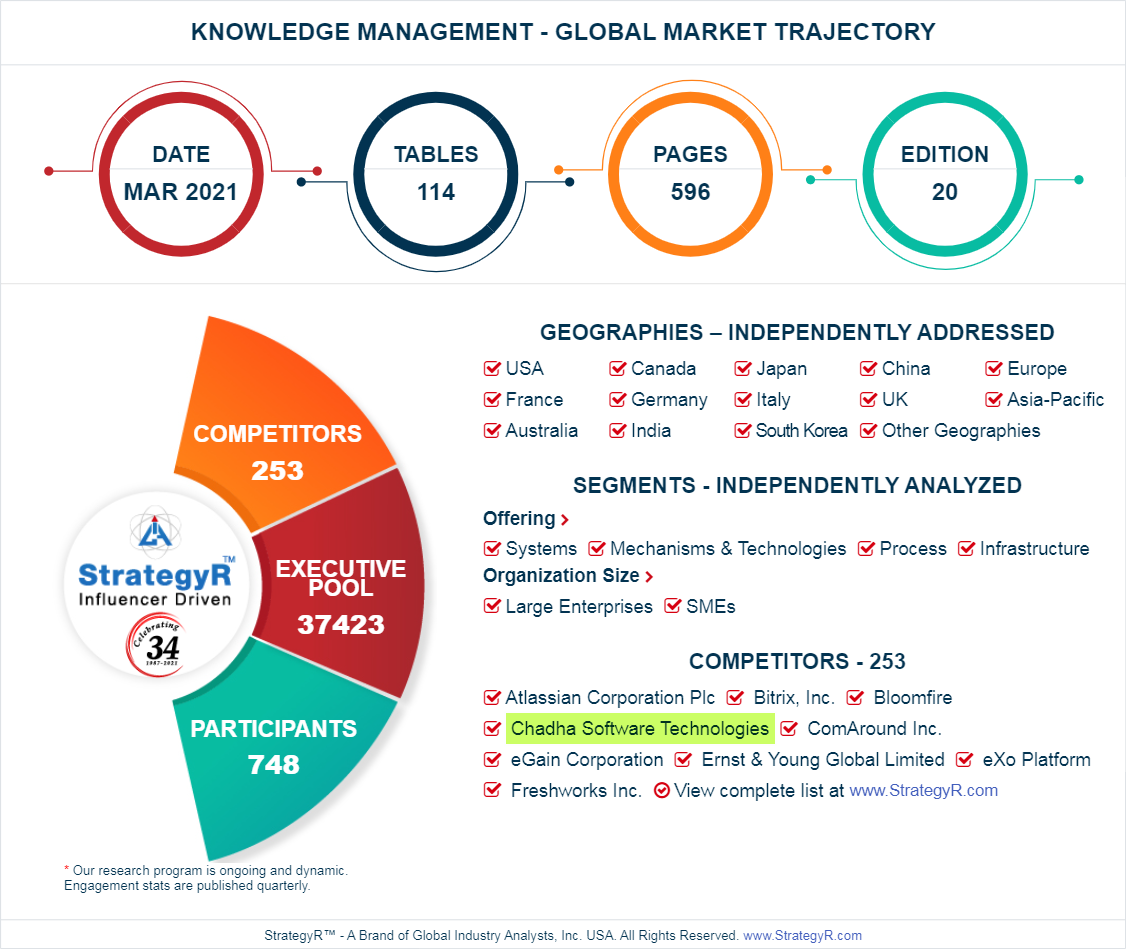Global Knowledge Management Market to Reach $1.1 Trillion by 2026
Estimated Reading Time: 2 MinutesKnowledge management is a managerial approach through which an organization collects, analyzes, systematizes, stores, and shares its knowledge assets or knowledge-based intellectual property. The global market is anticipated to expand due to the growing need to retain customers and improve customer satisfaction.
Amid the COVID-19 crisis, the global market for Knowledge Management estimated at US$381.5 Billion in the year 2020, is projected to reach a revised size of US$1.1 Trillion by 2026, growing at a CAGR of 19.8% over the analysis period. Systems, one of the segments analyzed in the report, is projected to grow at an 18.2% CAGR to reach US$444.5 Billion by the end of the analysis period. After a thorough analysis of the business implications of the pandemic and its induced economic crisis, growth in the Mechanisms & Technologies segment is readjusted to a revised 21.1% CAGR for the next 7-year period. This segment currently accounts for a 28.5% share of the global Knowledge Management market.
A Knowledge Management System (KMS) is associated with carrying out various functions of KM, i.e. collection, dissemination, analysis, and general management of knowledge or information, for an organization, and delivers results that enable the organization to use the same in an effective and efficient manner. KMS system is intended for using and applying the principles of KM for allowing customers and employees to rapidly create, find and store relevant information.
The COVID-19 pandemic and the resultant remote working phenomenon have provided a significant boost for knowledge management solutions across the world. With the remote working pattern emerging as a mainstream phenomenon, the need for knowledge management solutions is expected to increase going forwards. Even with the COVID-19 curve flattening, and mass vaccination programs still at a distance, most companies are expected to continue with the work-from-home model at least into the near future. The KM systems fit perfectly into the needs of an organization, which could be required to operate with employees of other departments in the absence of a relevant workforce (either due to layoff or COVID-19 related absenteeism). The pandemic also caused several companies to adopt cloud-based knowledge management software that imparts flexibility to their businesses, while those with such technologies already in place would continue to have an edge other those transitioning later. The use of cloud-based KM systems would help organizations create and share information in real-time with employees for better customer handling. In addition, the increasing amount of data being collected by organizations is expected to drive the demand for knowledge management solutions.
Knowledge Management Mechanisms are structural or organizational means utilized for promoting knowledge management. Some examples of KM mechanisms include on-the-job training, learning by doing, learning by observation, and face-to-face meetings. Knowledge Management Technologies refer to various types of information technologies that enable knowledge management.

Read More... https://bit.ly/3iIBAtl